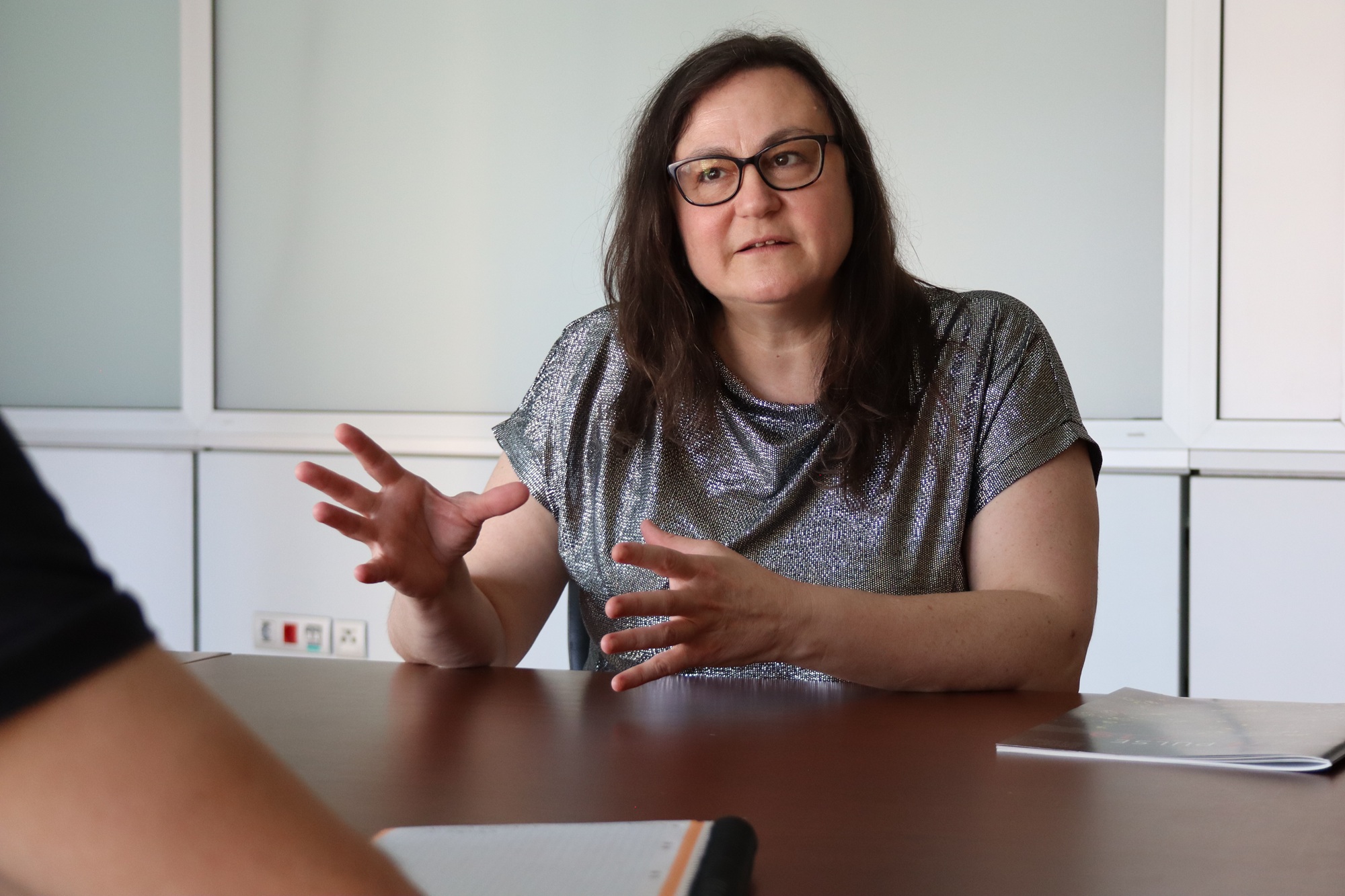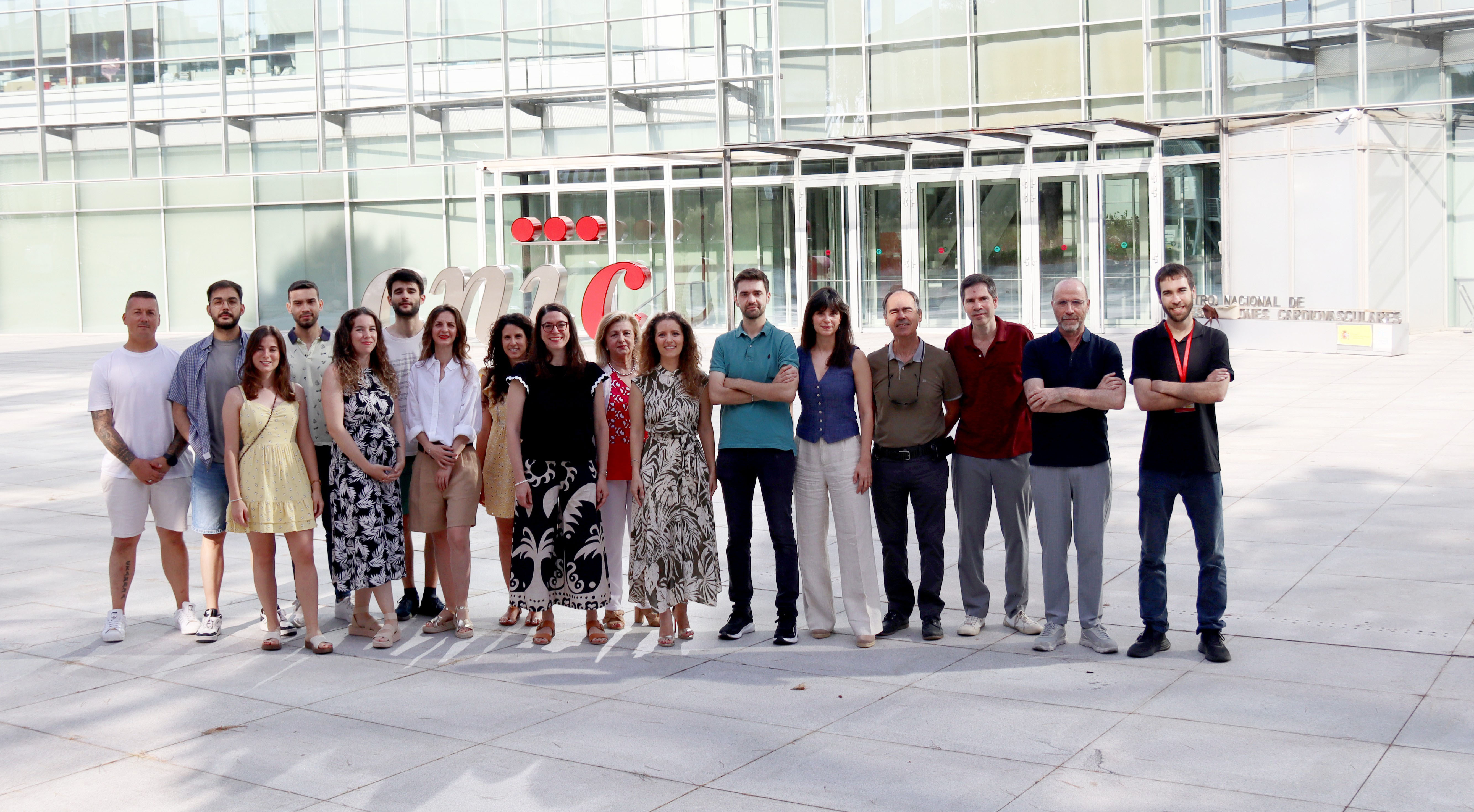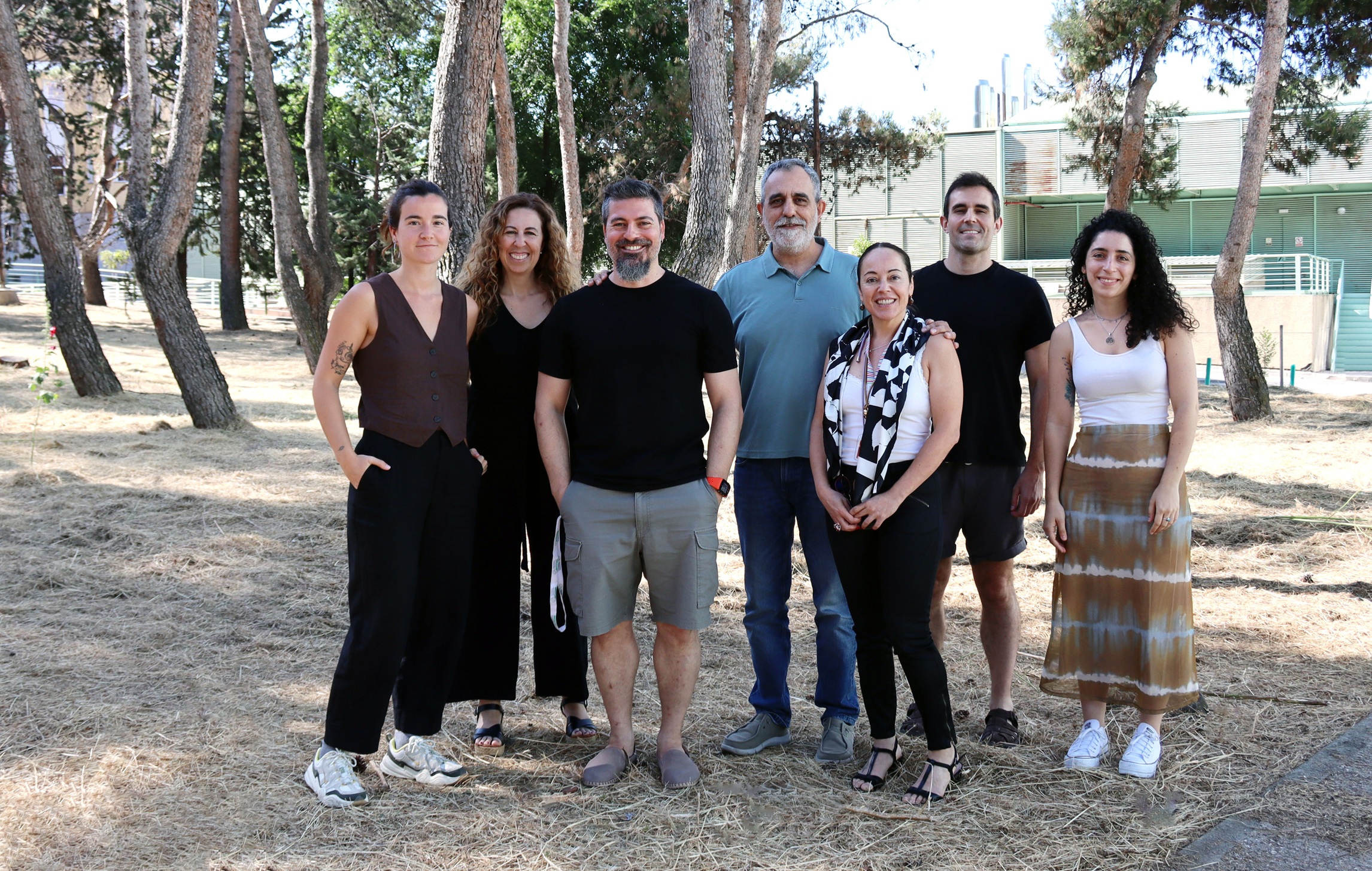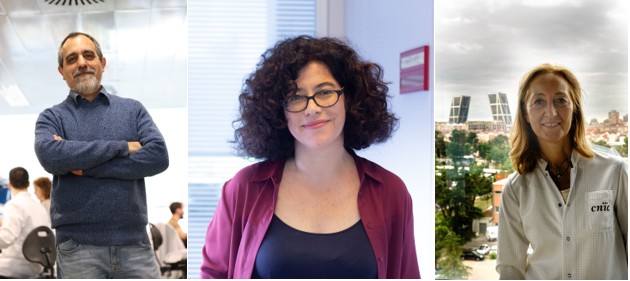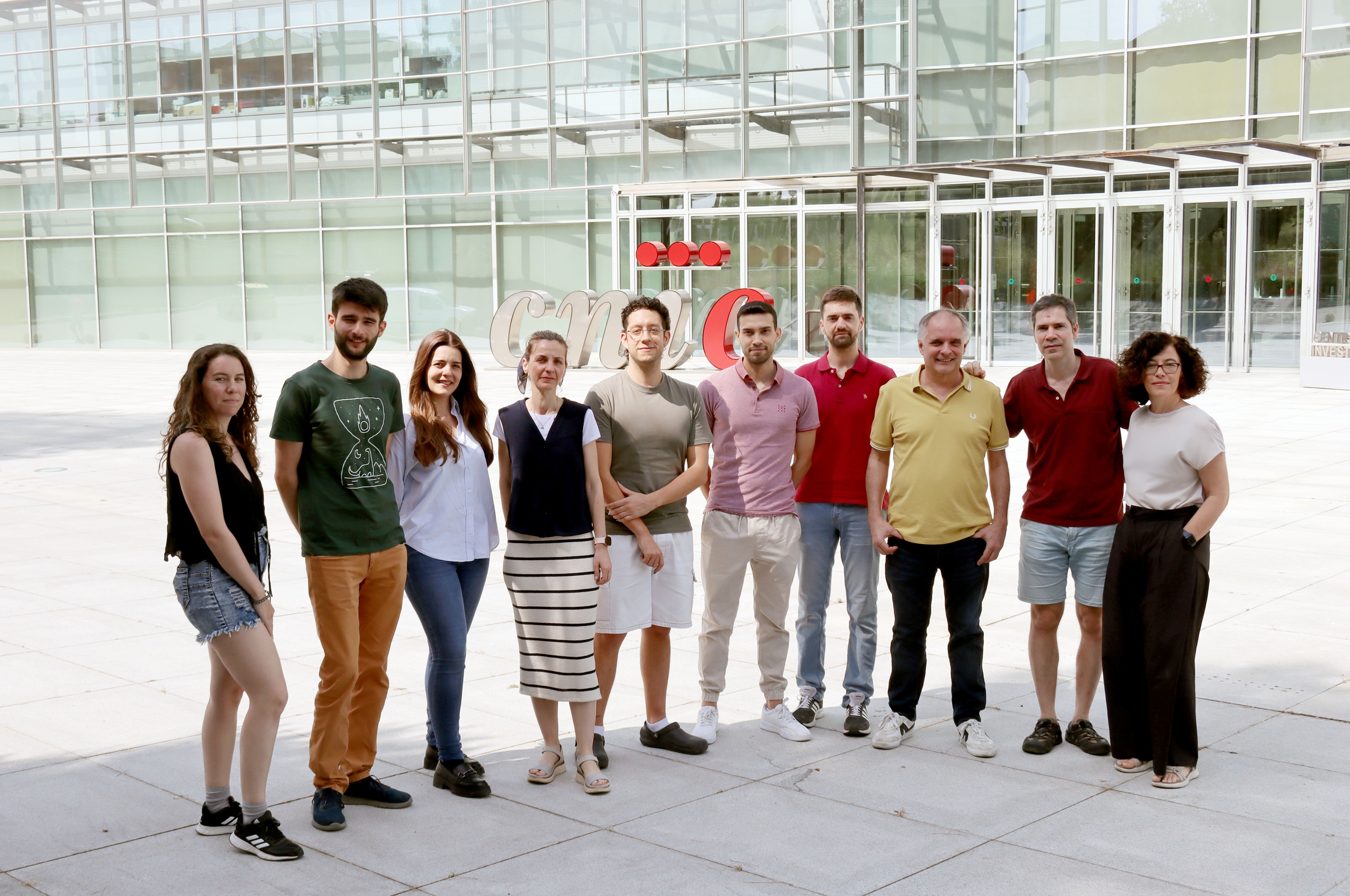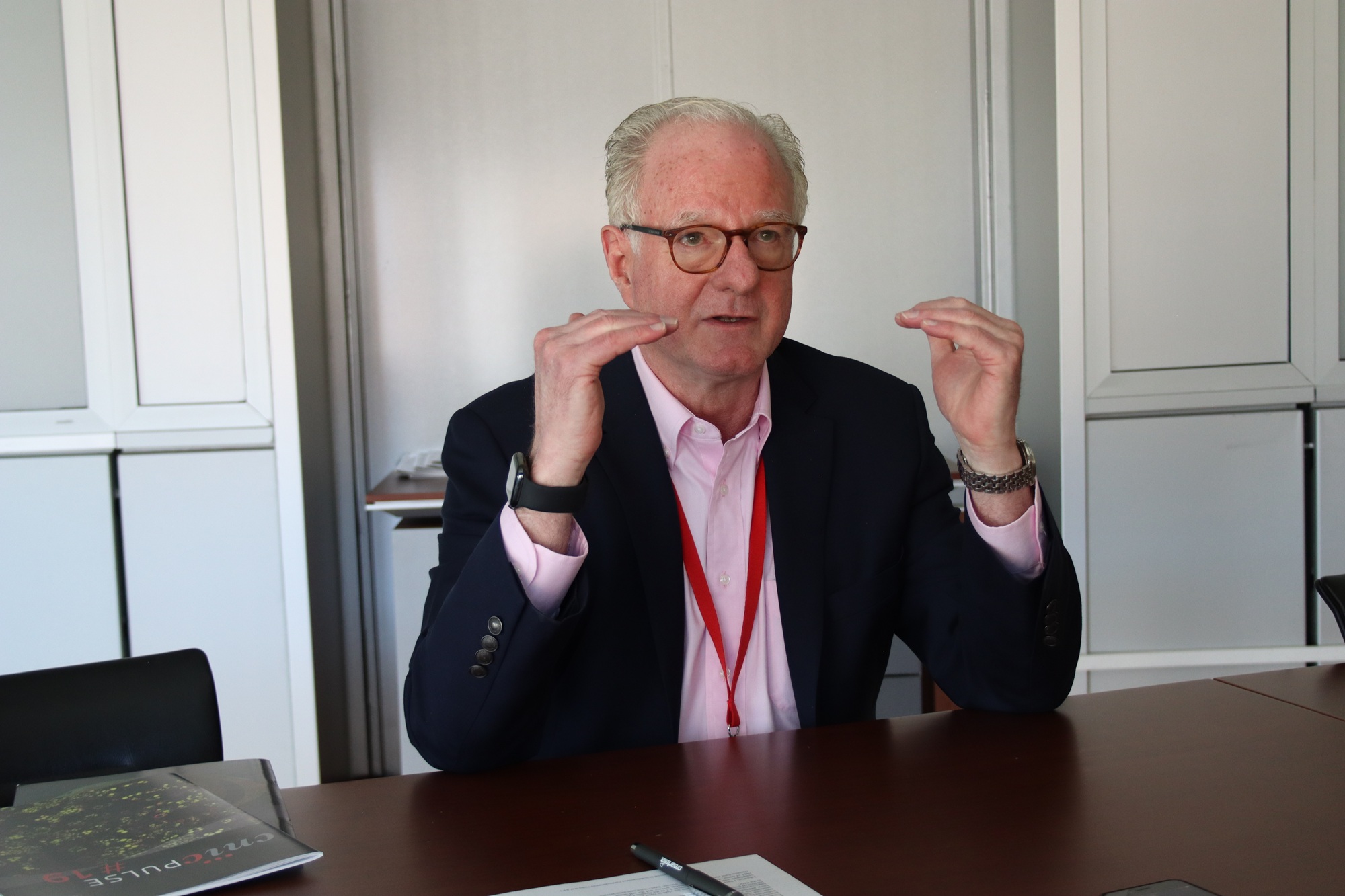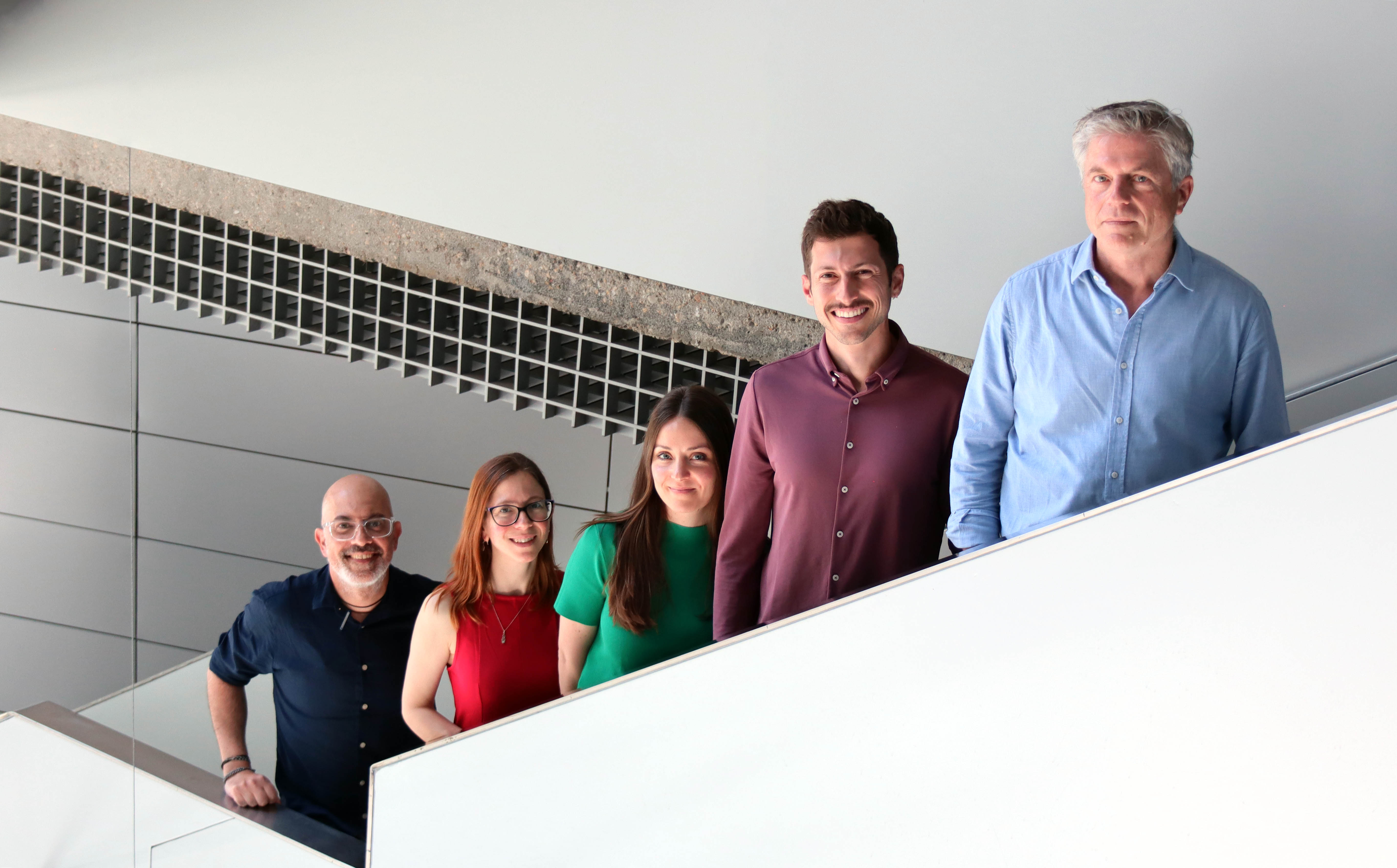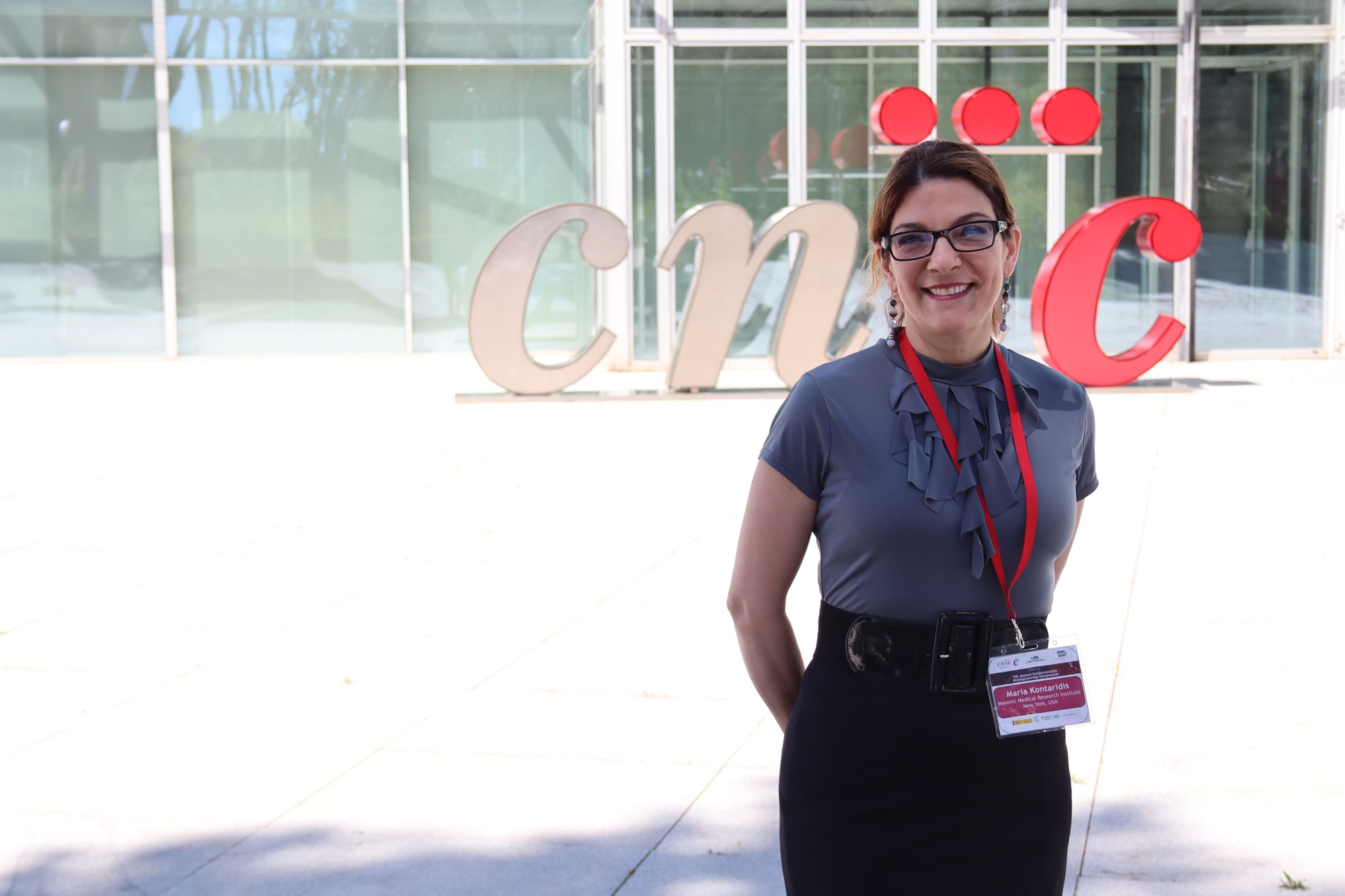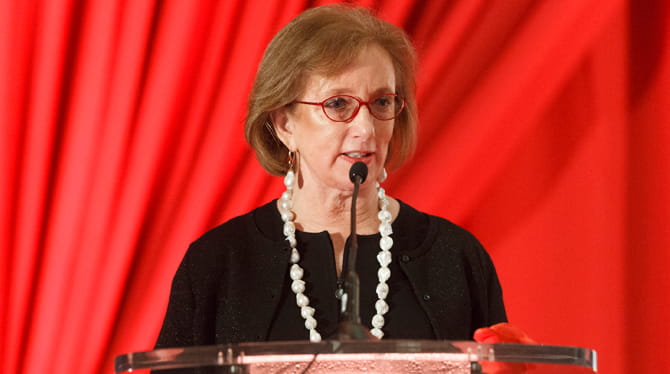News search
|
Research 1 Aug 2025 Dr. Claudia Monaco, Kennedy Institute of Rheumatology, Nuffield Department of Orthopaedics, Rheumatology and Musculoskeletal Sciences, University of Oxford, UK |
|
Research 16 Jul 2025 A new study led by the CNIC has identified imidazole propionate (ImP), a metabolite produced by gut bacteria, as a driver of atherosclerosis— as a driver of atherosclerosis, the disease behind most heart attacks and strokes |
|
Research 2 Jul 2025 CNIC researchers have uncovered the evolutionary logic of the OxPhos system—the cell’s “engine”—and developed a tool to detect mutations that cause mitochondrial disease |
|
About the CNIC 17 Jun 2025 The projects—led by Drs Almudena Ramiro, José Antonio Enríquez, and Silvia Priori—will receive a total of €5.25 million for CNIC research over the next 5 years |
|
Research 2 Jun 2025 A team from the CNIC has discovered the key role of conventional type 1 dendritic cells (cDC1) in atherosclerosis and has developed an experimental therapy with immunosuppressive nanoparticles that slows the progression of the disease in animal models. |
|
Research 31 May 2025 Dr. Joseph Hill holds the James T. Willerson, M.D., Chair in Cardiovascular Disease and the Frank M. Ryburn Jr. Chair in Cardiac Research at the University of Texas Southwestern Medical Center |
|
Research 29 May 2025 CNIC researchers have discovered that the heart is formed from two independent cell types that act in synchrony from the onset of gastrulation. This finding could help to better understand the origin of certain congenital heart defects and open up new opportunities in regenerative medicine and tissue bioengineering. |
|
Research 17 May 2025 Dra. Maria Kontaridis currently serves as the Gordon K. Moe Professor and Chair of Biomedical Research and Translational Medicine, as well as is the Executive Director and Director of Research, at the Masonic Medical Research Institute |
|
Research 14 May 2025 Dr. Mariell Jessup is Chief Science and Medical Officer of the American Heart Association |
|
Research 14 May 2025 Jianyi «Jay» Zhang, Chair of the Department of Biomedical Engineering (BME), at University of Alabama -Birmingham (UAB). |
- ‹ previous
- 3 of 38
- next ›
